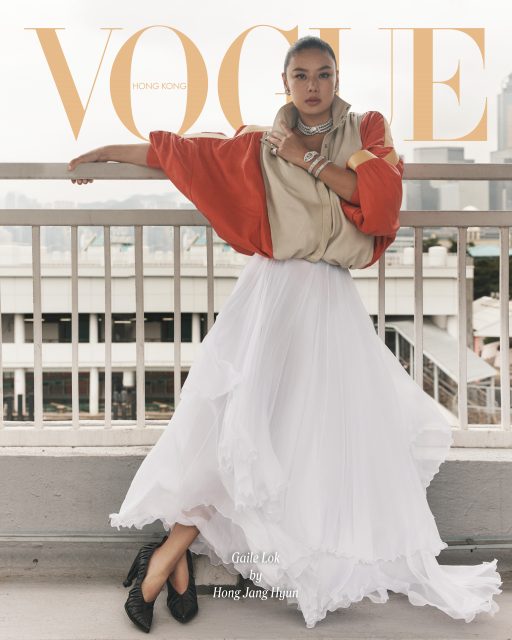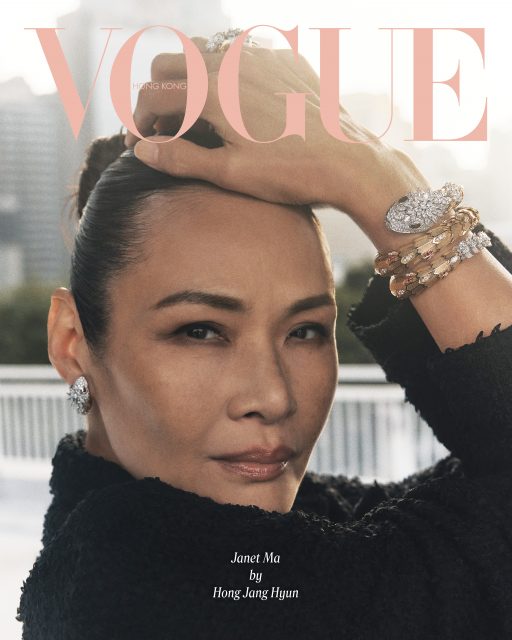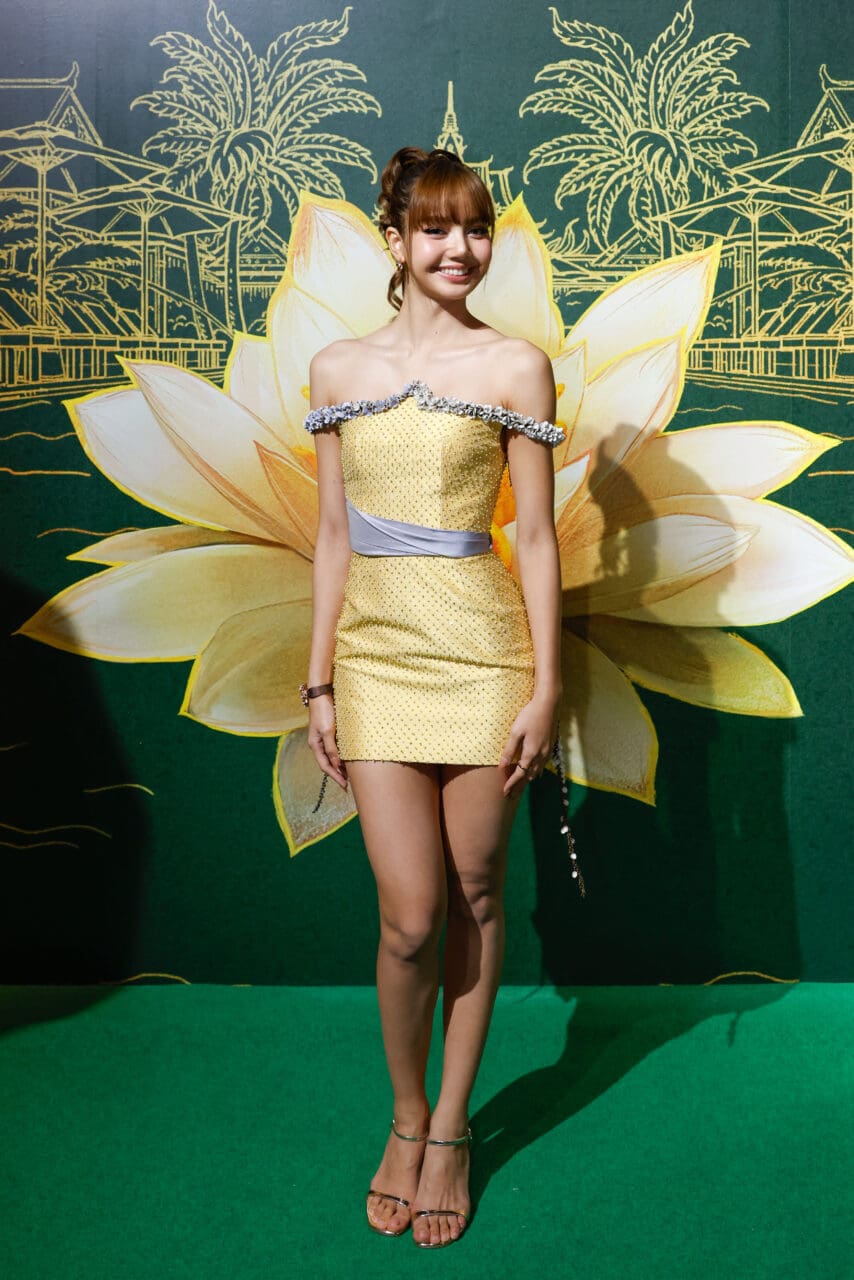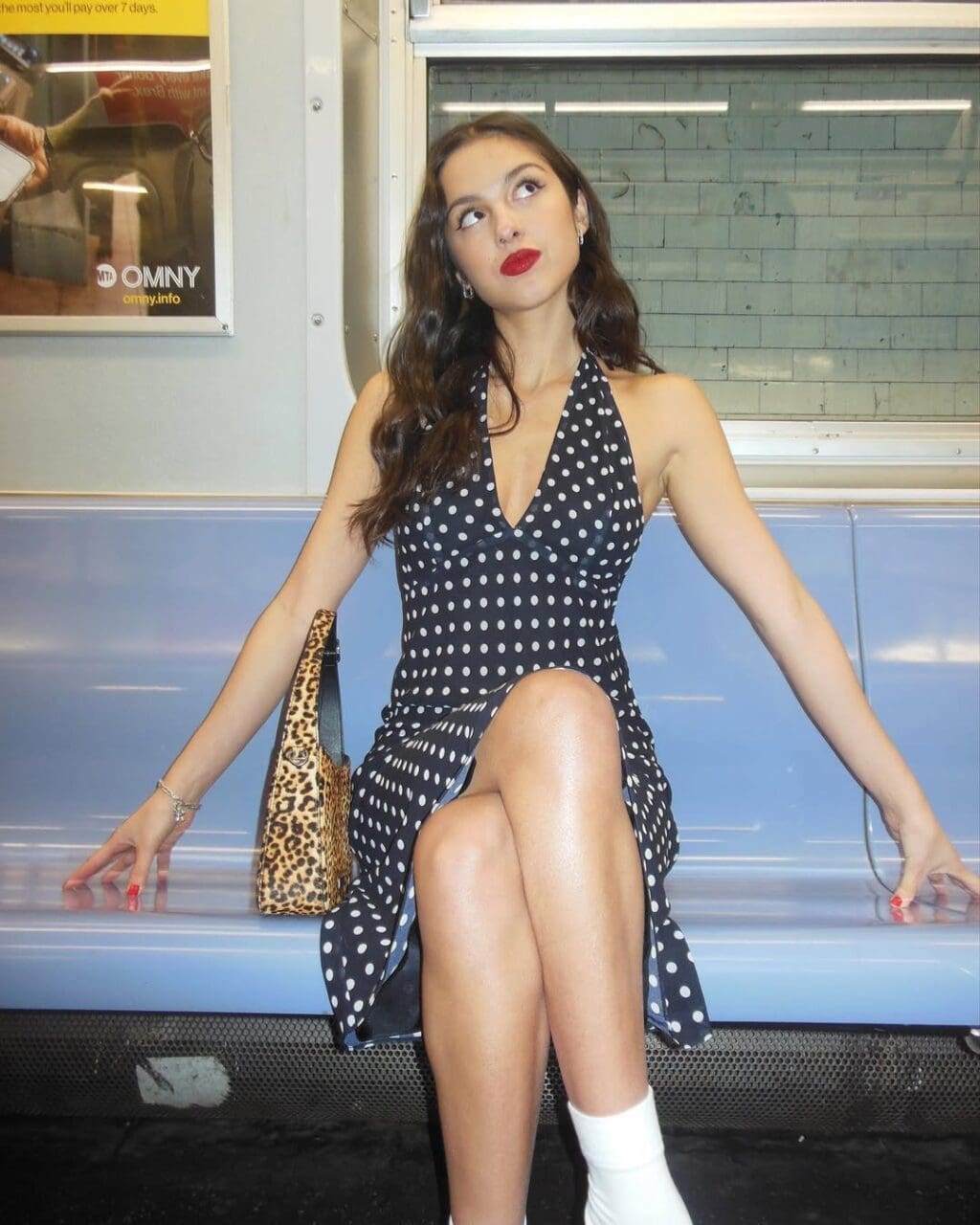Born and raised in Hong Kong, Kathy Chow began her modelling career in the 1990s, garnering attention for her sweet demeanour and delicate features. Apart from gracing the runways, she has become a ubiquitous face on campaigns and television lifestyle shows, securing her status as one of Hong Kong’s most famous supermodels. Now a proud mother, Chow spends her time making memories with her children out of the limelight. In her everyday life, Chow has a penchant for vintage Hong Kong items and enjoys Hong Kong cuisine, particularly fishball noodles — a humble dish that never fails to remind her of home, no matter where she is in the world.
Does today’s shoot bring back any memories of your modelling days?
Yes, it’s great to see everyone again. Back in the day, when we were models, we had to work non-stop to make ends meet. We had to keep going to auditions that our agencies arranged, and oftentimes only one person would be picked out of a hundred people. Everyone had to fight for opportunities themselves. In my era, there were many fashion shows in Hong Kong. TDC (Hong Kong Trade Development Council) had large-scale fashion exhibitions every year, or we’d go overseas for shows.
Looking back on your modelling career, are there any unforgettable moments or experiences?
I remember W Magazine wanted to feature an Asian model on their cover. It was a major international fashion magazine that all models dreamt of being on. We travelled to Beijing and Guilin for the shoot — the story was about a Chinese girl falling in love with a foreigner, and it was very romantic. I went through three rounds of auditions and made it into the final 5. It felt like I was in a beauty pageant. I was chosen in the end, and I was so happy because it was my first international magazine cover. Afterwards, I was offered a lot of opportunities to star in advertisements as well as invitations to numerous fashion shows.
The fashion and modelling industries have changed a lot in recent years. What are your thoughts on industry trends, notably the rise of influencer culture?
Every industry is evolving. In the past, you had to rely heavily on the media as a model, and it’s very different now. Today, people can create their own media channels and promote themselves across different platforms like Instagram and Weibo. One person can build a whole career now by themselves. All it takes is one post from an influencer to promote a brand. Everyone knows the times have changed, now anyone can pursue what they love.
Do you like the social media scene?
There are two sides to every coin. On the bright side, you don’t need to rely on as many external forces — as long as you have fans, you can blow up on the internet. For personal branding, this is good. Times have changed. If I have a nice photo of myself, I’d post it on social media too. There are now many platforms you can use to promote yourself, your phone is your life. Everyone has to accept it and adapt.
Has it been difficult to balance modelling with motherhood?
Yes, now I am basically a full-time stay-at-home mother to my two sons. Since they started school, I’ve shifted my focus on their learning progress and accompanying them as they grow up, nurturing their personalities. I can’t leave this to the maid.
Why did you choose to send your sons, who are half-French, to local schools?
I was insistent that my two sons must learn Chinese. They’re very smart, they understand their cultural background and speak Cantonese. English is not a hard language to grasp but to learn Chinese, you need an in-depth understanding of Chinese culture and characters from a young age. I didn’t want them growing up only exposed to Western culture.
Can you share your everyday routine with us? How do you allocate your time?
I’m a full-time stay-at-home mother, but I still like socialising, so I’ll make plans to eat out or hang out with friends. Many women stop going out after having kids, but I give myself me-time to catch up with friends or even take short trips together. I start my day at 7 in the morning when I send my kids to school and I head to the market for groceries. Afterwards, I pick my kids up from school and help with their homework. From time to time, I’ll get ready and attend social gatherings with friends once I’ve settled my little ones down for the evening. I need my own time to do what I normally would to grow as a person and not feel stuck in life. You must always improve yourself as a person.
As a native Hong Konger, how would you describe your feelings for Hong Kong? What does Hong Kong mean to you?
Hong Kong is where I was born and raised, my whole life revolves around the city. I didn’t understand what was happening as a kid, but growing up, I realised how much this city has changed, with many old buildings now gone. I like the old districts very much, I’m nostalgic. Nowadays, it feels like Hong Kong lacks some local cultural spirit. Perhaps it’s inevitable with the times. Land is so scarce and expensive here, so I understand, but can’t we preserve more of the city’s history?
I really like Hong Kong cuisine, anything from cha chaan tengs to cart noodle shops. We ate cart noodles on the streets in the old days. I remember my mother bringing me out for a meal, everything about cart noodles was so special. In my spare time, I’ll go hunt for these old places in areas like Yuen Long, where you can still eat traditional fish ball noodles and wonton noodles. I’ll never get tired of the French toast and macaroni with ham from cha chaan tengs. If I’m ever abroad for a month, I’d really miss and crave a bowl of fishball noodles. It’s about the food but also the nostalgia.
How would you define the “Hong Kong spirit”? How can it be passed on?
The Hong Kong spirit is about working hard and learning how to enjoy life. I’m a true Hong Konger, I can’t stop hustling. Hong Kong people must unite — as long as we stick together, the spirit can live on. Don’t complain too much, and spend more time in the city. Rent needs to stay reasonable so everyone can freely pursue what they love and unite across different areas. I used to love strolling the streets, particularly supporting local fashion designers and artisanal shops. There used to be a lot of small local shops on Jervois Street in Causeway Bay, but skyrocketing rents forced them out. I hope the issue of rent can be alleviated to let creative small businesses thrive happily.
Any words for your fellow Hong Kongers?
Unity is strength, don’t spread too much negativity.
Translated by Kaitlyn Lai
Photography: Hong Jang Hyun
Fashion Director: Jonathan Yee
Creative Producer: Marina Fairfax
Executive Producer: Second Li
Artist & Creative communication: Lee Kyung Kim @ BL Creative House
Senior Fashion Editor: Kyle Tang
Makeup Artist: Jenny Shih & Heisan Hung
Hair Stylist: Keith Wo & Jackal Wong
Production Manager: Jacky Liu
Fashion Assistants: Mama Yiu & Tsz Ching
Editor
Chan Ning






